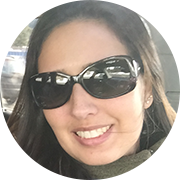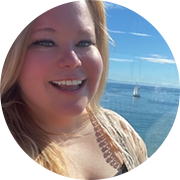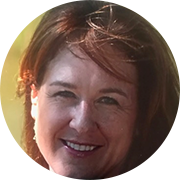When you were a kid, what did you want to be when you grew up?
It’s a question that makes us reflect on how we’ve either achieved or changed the direction what we dreamed of—when our imagination had no limits.
International Women in Engineering Day, celebrated annually on June 23, was established to encourage women to break through their limitations—real or perceived—and follow their dreams in engineering and other science, technology, engineering, and math (STEM) careers.
According to the U.S. Census, in 1970, women made up 38% of the U.S. workforce but held only 8% of STEM jobs. By 2019, women were 48% of the workforce—and still held just 27% of STEM jobs. Notably, women still account for only 15% of workers in engineering occupations.
But the gradual gains women have made in engineering are making a difference. Today, women are finding greater encouragement, better support networks, and a higher level of acceptance as they pursue engineering careers.
U.S. Borax has a proud history of inclusivity for women in mining. We spoke with three female engineers at our Boron, California, operations to get their take on the rigors and benefits of their careers with U.S. Borax.
Jana Silva, Project Engineer
 As a child growing up in Brazil, Jana Silva was fascinated by technology. “I wanted to be a mechatronics engineer and build robots,” she says. With her family’s encouragement, she worked full-time and pursued school at night. She completed advanced degrees in electrical engineering, business administration, and finance—a formidable combination that made her highly sought-after as a commissioning consultant and project manager.
As a child growing up in Brazil, Jana Silva was fascinated by technology. “I wanted to be a mechatronics engineer and build robots,” she says. With her family’s encouragement, she worked full-time and pursued school at night. She completed advanced degrees in electrical engineering, business administration, and finance—a formidable combination that made her highly sought-after as a commissioning consultant and project manager.
Jana spent a number of years traveling the world as a project manager and commissioning specialist in refineries, surface, and underground mining environments. That experience enabled her to continue building her skills—and gain confidence in the value that she brings to the teams she works with. “I started out as a commissioning EIT for a Brazilian petroleum company in the installation and commissioning of four new diesel turbines and boilers in a thermoelectrical plant,” she recalls. “I was the only woman on site, very young, and feeling like a minority at first. I thought I had to somehow prove myself constantly.
“But with time, I’ve realized I don’t have to prove my worth when my skills speak for themselves,” says Jana. “When you have confidence in your work, your coworkers will respect you and accept you on your own merit.” That said, she also believes that supporting women in engineering strengthens the field. “Engineering, in general, is about complex problem solving, and that requires a diverse set of skills and perspectives,” she says.
And, her role at U.S. Borax is all about solving complex problems. As a project manager for our Sustainable Development Program, Jana focuses on project development for mine operations, maintenance, safety, and environmental improvements that help us operate more economically while reducing water consumption and greenhouse gas emissions. She currently oversees 18+ different projects of various sizes and budgets that span between a few months to three years.
Her favorite part of the job? The company’s focus on safety, environment, community, and integrity. In addition, she loves being able to stay with a project from start to finish—in one location. After years of moving from site to site, she is delighted to have put down roots in Boron. She’s looking forward to volunteering and building connections in the community.
Does she ever wish she had pursued her dream of building robots? She laughs, “My brother actually has a master’s in artificial intelligence (AI) and a doctorate in robotics. But I’m building things that are bigger than robots.”
Jana’s advice to women considering engineering
Be confident! Regardless of the environment you’re working in, focus on your own values—and be sure your company’s values match yours.
Christina Vink, Senior Engineer, Processing
 Chrissy Vink is a living witness to the acceleration of acceptance for women in engineering. “I think the industry has changed significantly within even my career. We’re seeing a lot more women in senior leadership teams, and that enables an environment where there are diverse views and skillsets. We’re seeing the workforce be challenged for acceptance, diversity, and inclusion.
Chrissy Vink is a living witness to the acceleration of acceptance for women in engineering. “I think the industry has changed significantly within even my career. We’re seeing a lot more women in senior leadership teams, and that enables an environment where there are diverse views and skillsets. We’re seeing the workforce be challenged for acceptance, diversity, and inclusion.
Even as recently as a decade ago, Chrissy felt the stress of being the only woman on an all-male team. “At first, I felt I was allowed to sit at the table but not speak. I had to become instrumental to my team through collaboration, relying on data, and asking open-ended questions. This empowered me to become an expert in my field and challenge the status quo.”
Asking questions also helped Chrissy develop a solid support network. “I developed great relationships with people and continuously drove results to build a reputation as someone who brings groups together to achieve results.”
Starting with a Bachelor of Science in chemical engineering, Chrissy spent nearly a decade in the coal industry, gaining experience in commissioning and process optimization—a highly technical specialty that she’s proud of. “I started my career designing plants and increasing tonnage through equipment design and process control, then migrated into supervision of hourly and engineering teams. I’ve worked as a technical expert at numerous plants to drive change through data. And, I lead by building teams across functions to support maintenance, engineering, and improvement projects.”
Chrissy then came to U.S. Borax. “I was excited to work for a manager who was hungry for my knowledge, valued my opinions, and trusted me to initiate change at the site to make an impact. There is a lot of opportunity with Rio Tinto, and I really enjoy being in an organization with a significant number of women in leadership roles. I also appreciate that so many of those women are willing to share their time and experience mentoring me.”
Chrissy wants to pay that gift forward as she works with younger team members as a coach and mentor. “I’ve always been interested in how and why things work and enjoy working to make processes better for both people and the business. Here, I am empowered to mentor and train young professionals and develop plans to help them pursue their interest and enjoy their careers.”
Her experience of being both a technical resource and supervisor has made her aware of the positive culture shift happening in engineering. Today, Chrissy says there are more women seeking careers in mining and they are progressing to roles where they can facilitate change in senior positions. “In addition, I think the industry is purposely pursuing ways to allow different personality types to flourish and provide more diversity. This allows people to engage authentically and marry technical resources with experience.”
Chrissy’s advice to women considering engineering
Remain curious, ask lots of questions, build a network of mentors and sponsors who will help you to grow technically—and stay open to change.
Renee Doyle, Mine Hydrologist
 “STEM courses always interested me more than the other courses I took in school. Yet, engineering was not something that I truly thought about pursuing when I was younger. I was more in line to follow in my family’s footsteps and become an accountant. In the end, I defaulted back to the STEM field as that is where my interest truly lies,” says Renee Doyle. Then, she found out that a gold mining company was coming to the pristine area she lived in, and she saw people in her community express their concerns about potential environmental impacts through rallies and protests.
“STEM courses always interested me more than the other courses I took in school. Yet, engineering was not something that I truly thought about pursuing when I was younger. I was more in line to follow in my family’s footsteps and become an accountant. In the end, I defaulted back to the STEM field as that is where my interest truly lies,” says Renee Doyle. Then, she found out that a gold mining company was coming to the pristine area she lived in, and she saw people in her community express their concerns about potential environmental impacts through rallies and protests.
“I wanted to take a different approach and be able to understand the issue and positively contribute in a technical manner,” says Renee. “So, I took an environmental science class to learn more about the issue. At the end of the class, I came out wanting to have a profession that could help solve the potential problem.”
She pursued her goal, completing a degree at Montana Tech in Butte, MT along with training in environmental, hydrogeological, geotechnical, and civil engineering, project management—and accounting. A career fair at the university introduced her to U.S. Borax. “But it was the people that I interviewed with that made me want to work here,” she says. “Along with some really fascinating geology.”
Renee’s multidisciplinary knowledge is essential in her role with the Geotechnical Group at Boron, where she oversees “everything water-related” at the mine: Surface water management, groundwater management and depressurization, RC drilling project management for hydro and geotech projects, contractor management, and water-related infrastructure maintenance, telemetry, and budget management.
She never felt her gender was a barrier. “I come from a line of strong women who have endured a lot but never created excuses for themselves. It was expected that you work hard for whatever it was that you wanted to pursue and you didn’t give up.” However, she acknowledges that working in a historically male-dominated profession can be intimidating for some, and that women are still trying to find their place within the STEM professions.
“I have had times where I stop and look around, realizing that I am maybe the only female in a meeting. Or during my college days, realizing that I was one of seven females in a class of 40. But in general, it’s not something I think about,” she says.
A key to overcoming those remaining obstacles, she believes, lies in women understanding and promoting their own worth. “I think how you treat people and your technical understanding are going to dictate how you are treated and received. We are lucky that society is starting to accept a more diverse workforce and with that, there will be fewer obstacles for various types of people.”
After more than 11 years with U.S. Borax, Renee hasn’t regretted her choice. “I never envisioned myself working in the mining Industry, but it was something that I was willing to try. There is always something new to learn and improve on. Geology and hydrogeology are complex and that is what keeps it interesting. It has been a great experience—better than I imagined—and I am glad that things happened as they did.”
Renee’s advice for women considering engineering
If it is something that you are truly interested in, then do it. This type of work is a lot more fun than it appears and can offer some great personal and professional rewards. Don’t focus on the obstacles—focus on the possibilities and you will find opportunities that you never knew existed.
Celebrating our outstanding engineers
The founders of INWED understand that engineering shapes the world and at U.S. Borax, we are glad to take a moment to focus attention on the many opportunities for women in engineering—at a time when their skills are greatly needed across industries.
For many of us, life presents challenges and opportunities that change our trajectory. For these three engineers at U.S. Borax, those challenges and opportunities led to their careers at our Boron, California facility—and we are proud to have them. The innovations of creative engineers like Jana, Chrissy, and Renee are vital our operations, and we are committed to offering an environment that welcomes and values their contributions.
Resources